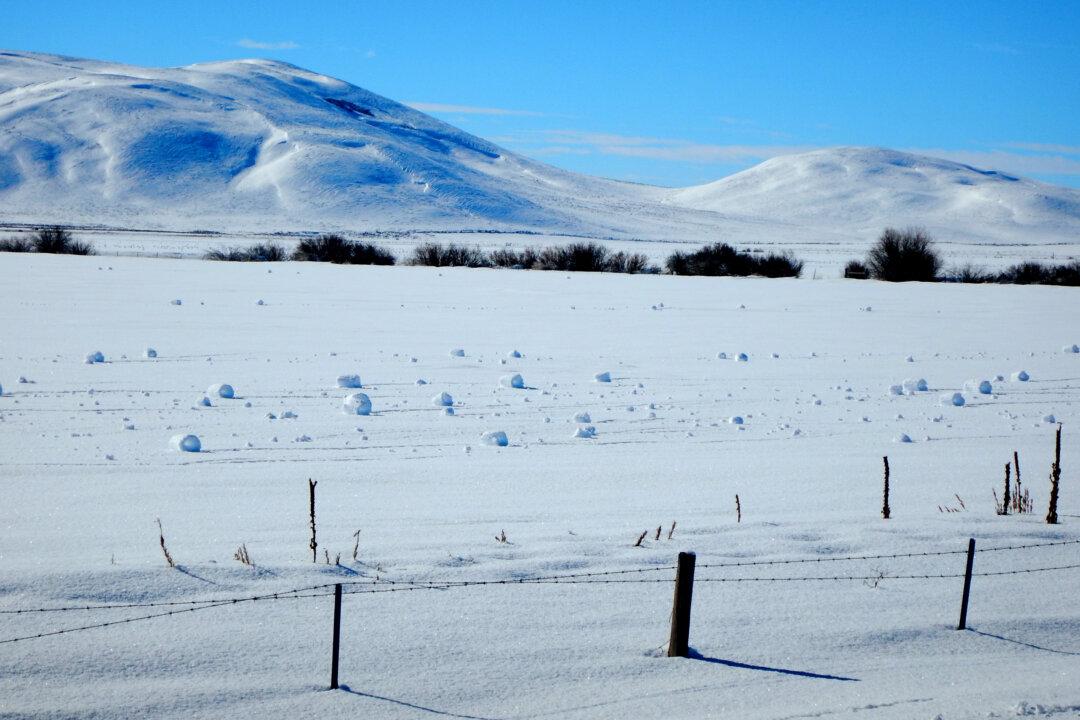BOISE, Idaho—Thousands of snowballs rolled in a flat central Idaho field look like the work of hundreds of ambitious kids — except there are no human tracks.
A rare weather event caused the spontaneous snowballs at the Nature Conservancy’s Silver Creek Preserve and surrounding fields near the tiny town of Picabo.
Preserve manager Sunny Healey spotted the cylindrical shapes up to 18 inches high on Jan. 30 following an overnight windstorm. They created long lines in the snow as they moved.
“You could see the tracks that they made, and I thought that was really curious,” Healey said. “I had to stop a couple times. Then, along Highway 20, there were thousands of them.”

This Jan. 30, 2016 photo provided by The Nature Conservancy shows a rare weather event that caused the spontaneous snowballs at The Nature Conservancys Silver Creek Preserve and surrounding fields near the tiny town of Picabo, Idaho. The National Weather Service says snow rollers are caused by an unusual combination of snowfall around a couple inches with the right water density and temperatures near freezing followed by strong winds. Sunny Healey/The Nature Conservancy via AP





